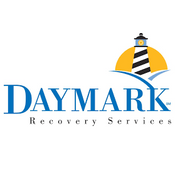What Are the Long-Term Effects of Opioid Use Disorders?

Opioid use disorder occurs when a person becomes physically and psychologically reliant on opioids. The disorder can lead to a variety of serious health complications, which is why entering a recovery program is essential. If you or someone you love is struggling with opioids, here’s what you should know about opioid use disorder and its long-term effects.
What Are Opioids?
Also known as opiates, opioids are a class of drug that includes both prescription medications, which are primarily used for pain relief, and illegal drugs like heroin. The most common opioids include codeine, fentanyl, hydrocodone, hydromorphone, meperidine, methadone, morphine, and oxycodone. A person may take an opioid orally, inhale it through the nose, inject it into a vein, or smoke it. Prescription opioids may also be taken as suppositories.
Opioids provide a temporary feeling of intense pleasure. That’s why some people use them recreationally or more frequently than their doctor prescribed, especially when their tolerance increases, and they need higher doses to achieve the desired effect. However, even with minimal opioid use, a person can become physically reliant, meaning their body craves the drug. They can also become psychologically reliant, meaning they consciously crave the drug’s effects. Health professionals refer to both forms of reliance as opioid use disorder.
The Long-Term Effects of Opioid Use Disorder
 Since opioids impact multiple organs and can hinder the brain’s production of dopamine and natural painkillers, opioid use disorder can lead to a variety of health effects. This causes the following symptoms.
Since opioids impact multiple organs and can hinder the brain’s production of dopamine and natural painkillers, opioid use disorder can lead to a variety of health effects. This causes the following symptoms.
- Nausea and vomiting
- Clinical depression
- Weakened immune system
- Constipation
- Sleep-disordered breathing, such as central sleep apnea and ataxic breathing
- Increased risk of fractures, possibly because opioids can cause dizziness and reduced alertness, leading to falls
- Increased risk of hepatitis, HIV, or infectious disease, common in intravenous use
- Increased risk of choking
- Hallucinations
- Collapsed veins or clogged blood vessels
- Hyperalgesia (increased sensitivity to pain)
- Overdose
While opioid use disorder takes a serious toll on your health, recovery is possible. If you or a loved one is struggling, turn to the compassionate team at Daymark Recovery Services. Established over 15 years ago in Lexington, NC, this trusted treatment center now has locations all over North Carolina. Their evidence-based, individualized treatment programs help people living with substance use disorders, mental illnesses, and developmental disabilities learn to thrive. Visit them online to find out more about their commitment to personalized recovery, and call (336) 242-2450 to discuss your needs with a caring team member.
About the Business
Have a question? Ask the experts!
Send your question

